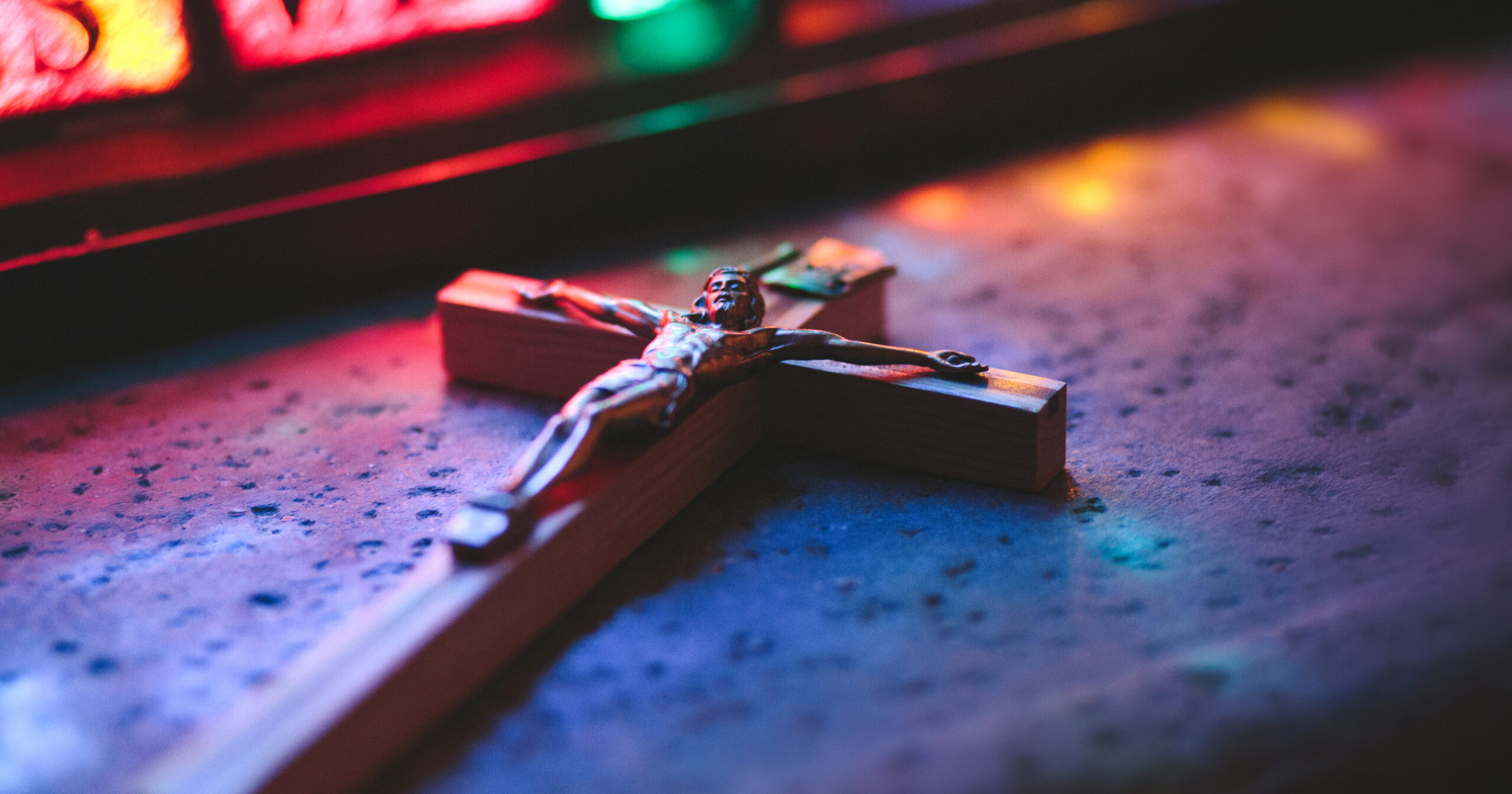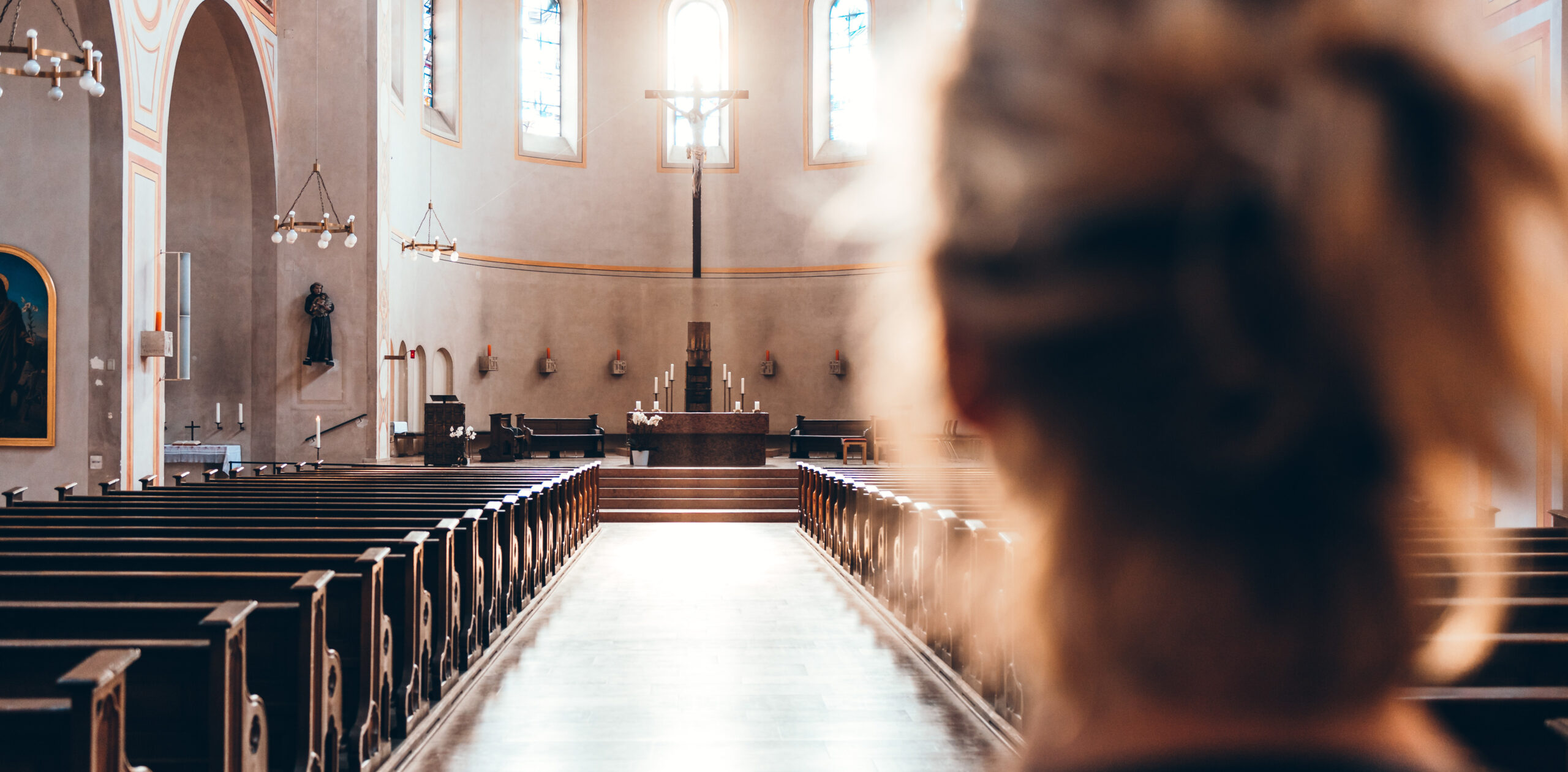In this series on the parts of the Mass we’re shedding some light on different aspects of the Mass so you can more perfectly enter in and be active in the celebration. You can find the previous parts in this series below:
The Mass is the greatest gift we have as Catholics. It’s the opportunity to commune with God, receive the Word from God, and receive his Body, his Blood and his grace for our life. The grace of God is the power of God for daily living. His grace gives us the power to put his will into practice.
In our last article we talked about the Confiteor, where we say:
“I confess to almighty God and to you, my brothers and sisters, that I have sinned in my thoughts, in my words, in what I have done, and in what I have failed to do … “
We make a good confession.
The Kyrie
Following the Confiteor there are two beautiful moments in the Introductory Rite. Right after we confess our sins, we experience the Kyrie, the mercy of God, when we say:
“Lord, have mercy. Christ, have mercy. Lord, have mercy.”
Now we’re not just saying that because that’s a good place to talk about mercy or because it’s in the Bible. These words are very carefully placed in the Mass. We just got done confessing our sins, and the only reason we are forgiven of our sins by God is because of his mercy.
Mercy is not simply a stronger entity pardoning a weaker entity. It is actually an extension of God’s love. God loves to give mercy. He is a merciful God. This doesn’t mean he just winks an eye and it’s all taken care of, but if you ask you can trust that he will forgive you. That’s mercy.
So we celebrate mercy in the Mass, and without mercy what would we do? We can ask for mercy by ourselves, but one of the beautiful things about the Mass—and what the Church teaches—is that when we ask for mercy— praying, “Lord have mercy, Christ have mercy”—we can actually do it on behalf of others.
Maybe you don’t feel like you’re in need of God’s mercy for any sin in your life right now, but maybe you have kids who are struggling. Maybe you have a son who is addicted to drugs, maybe there’s someone in your family who is struggling in their marriage, and they need mercy.
Did you know in the New Testament, we’re told you can cry out for mercy for somebody else? Matthew’s Gospel talks about a man crying out for mercy for his son:
“Lord, have mercy on my son, for he is an epileptic and he suffers terribly; for often he falls into the fire, and often into the water.”
Matthew 17:15
Also, there’s a story about a woman who cries out for mercy for her daughter:
“And behold, a Canaanite woman from that region came out and cried, ‘Have mercy on me, O Lord, Son of David; my daughter is severely possessed by a demon.'”
Matthew 15:22
So we can call out for mercy on behalf of other people. Next time you go to Mass, after the Confiteor, when you celebrate and focus on the mercy of God, also think about the loved ones in your life who need that mercy too.
The Gloria
After we say, “Lord have mercy, Christ have mercy, Lord have mercy” we all break into the Gloria. We sing glory to God. The Gloria goes from the Incarnation to the sacrifice of Christ. It’s like salvation history in miniature form. As a congregation we’re giving glory to God. We’re praising him for all that he has done. We confessed our sins, we called on the mercy of God. What’s the proper response? We give glory to God.
Oftentimes we sing the Gloria, and it’s a beautiful prayer of praise. But like any other part of the Mass you can do this without thinking. We start thinking, “OK, we’re singing this. This is familiar … ” instead of actively participating, getting in there and saying, “Lord, I’m going to give you glory for all that you have done. I confessed my sins. I called on your mercy. Now I give you glory.”
Next time you go to Mass, and you enter into the Kyrie and Gloria, really enter into these prayers and celebrate the goodness of the Lord.
What are your thoughts on these parts of the Mass? Let us know in the comments section at the bottom of the page.
Go Deeper!
A Biblical Walk Through the Mass by Dr. Edward Sri is a five-part program taking participants on an exciting in-depth tour of the Liturgy, exploring the biblical roots of the words and gestures we experience at Mass, and explaining their profound significance.
This article is also available as a video here.
You May Also Like:
Altaration: The Mystery of the Mass Revealed [study program]
Divorce, God’s Wrath in the Old Testament, and the Holy Sacrifice of the Mass [ Fr. Josh Johnson podcast]
Bringing Your Kids to Mass [Jackie & Bobby video]
Suffering and the Mass: The Great Exchange

Jeff Cavins is passionate about helping people understand Scripture and become disciples of Jesus Christ. Though he was born Catholic, Jeff went to Bible school and served as a Protestant minister for twelve years before reverting to the Catholic Faith. He then quickly became a leading Catholic evangelist and author. Jeff is best-known for creating The Great Adventure™ Bible study programs published by Ascension, which have been used by hundreds of thousands of people to engage in Scripture in a life-changing way. Some of his recent projects include his podcast, The Jeff Cavins Show, his book The Activated Disciple, and the Great Adventure Bible studies, Ephesians: Discover Your Inheritance, and Wisdom: God’s Vision for Life.






0 Comments
Trackbacks/Pingbacks